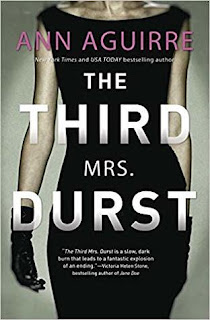Murder Monday #10 Bob Crane

Bob Crane was born on July 13,1928, in Waterbury Connecticut. He began playing drums when he was 11 and joined his high school's marching band and orchestra. In 1948, two years after graduating from high school, he enlisted in the National Guard and was honorably discharged in 1950. That same year, he started his broadcasting career at WLEA in New York. He moved to different radio stations in the northeast until 1956, where CBS radio hired him to host the morning show KNX in Los Angeles. He quickly topped the morning rating and eventually started to move into acting; guest-hosting for Johnny Carson on Who Do You Trust? and making appearances on The Twilight Zone, Alfred Hitchcock Presents, General Electric Theatre, and even The Dick Van Dyke Show. He was offered a guest shot on The Donna Reed Show in 1963, which turned into a recurring role for a year. In 1968, Crane got his big role starring in Hogan's Heroes, which takes places in a German POW camp although it is very much a comedy. He still appeared in several more films, such as The Wicked Dreams of Paula Schultz, Cactus Flower, Superdad, and Gus.
Moving into Crane's darker features, he videotaped his own sexual escapades. While working on Hogan's Heroes Crane was introduced to John Henry Carpenter, a regional sales manager for Sony, who would eventually help Crane film these tapes. Whether the women in these tapes knew and consented is a pretty grey, Crane's son, Robert, insisting that all of the women were aware and had consented, while one of the women, had no idea she was recorded until the Scottsdale police told her after Crane's murder. In June 1978, Crane was living in Scottsdale, Arizona, during a run of Beginner's Luck, when his costar, Victoria Ann Berry, entered his apartment to find him bludgeoned to death with an electrical cord around his neck. The exact weapon was never found although it's believed to have been a camera tripod. While there was no forced entry or valuables missing, the Scottsdale Police did find the videotapes which led them to Carpenter, who was in the area at the time of the murder. In his rental car, they found several blood smears, that didn't match Crane's (DNA testing wasn't available at the time) and the case went cold.
In 1990, Jim Raines, a former Phoenix homicide investigator, re-examined the evidence and although the DNA testing of the blood was inconclusive, he found an evidence photograph that appeared to show a piece of brain tissue, and although the sample had been lost, a judge still found it admissible and officially reopened the case. In June 1992, Carpenter was arrested and charged with Crane's murder.
During the trial, Crane's son, Robert, testified that in the weeks leading up to his father's murder, Crane had expressed to desire to sever their friendship, which could be a potential motive. Carpenter's attorneys stated that all the evidence they had against him was all circumstantial: there was no evidence indicating he was there, that his motive was all hearsay, and there wasn't even a clear idea as to what the murder weapon even was. Eventually, Carpenter was acquitted and still claimed his innocence until his death four years later.

Comments
Post a Comment